Master of Ceremonies: Paul Strassman
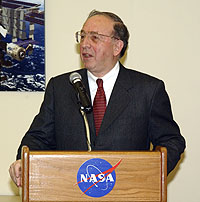
Paul A. Strassmann is president of The Information Economics Press, and a consultant and writer in the field of information management and information worker productivity, with over 200 articles published. He currently serves as Executive Advisor, NASA.
His career includes executive positions with General Foods, Kraft, and Xerox. He has also served at the Pentagon as Director of Defense Information, and at NASA as Special Assistant to the Administrator for Information Management and Acting Chief Information Officer. He is the recipient of the Defense Department Medal for Distinguished Public Service, and the NASA Exceptional Service Medal.
Born in Trencin, Czechoslovakia in 1929, Strassmann served in a partisan combat unit from September 1944 through March 1945.
More information is available on Mr. Strassman's website.
Welcome: Christine Todd Whitman
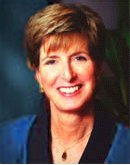
Christie Whitman was appointed Administrator, United States Environmental Protection Agency, in January 2001. Prior to her appointment, Administrator Whitman was the Governor of New Jersey; the first woman to hold that position.
The Administrator came to the Governorís Mansion after first heading the New Jersey Board of Public Utilities and the Somerset County Board of Freeholders. She grew up in Hunterdon County, New Jersey. She holds a bachelorís degree in government from Wheaton College, Massachusetts.
She and her husband, John R. Whitman, have two children.
More information is available on the EPA website.
Featured Speaker: Peter Masters
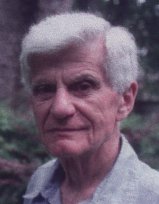
Peter Arany was a Jewish middleclass boy, born in Vienna, Austria, in 1922. He was 16 at the Nazi takeover in March 1938. Luckily he was able to escape to England six months later. In 1940 Britain interned most enemy aliens, fearing that some of the refugees might be Nazi spies pretending to be refugees. Peter was released after two months and got to London just in time for the start of the German air raids.
In September 1940, the age limit for joining the British army was dropped to 18, and Peter immediately enlisted. At first he was only allowed to serve in an unarmed labor unit, but after volunteering "for special and hazardous duty" he joined 3 Troop, 10 Commando, a top-secret elite unit of 87 Austrian, German, and Hungarian refugees. They were trained as parachutists, and in intelligence, reconnaissance, and interrogation. As part of a cover story to ensure that the existence of the unit was not known to the enemy, they were ordered to change their names and their dog tags read COE (Church of England). Peter Arany became Peter Masters.
He landed by sea on D-Day on Sword Beach, Normandy, with a bicycle.
After the war he attended the London Central School of Art and Design, and the Parsons School of Design in New York as a Fulbright scholar, and he became an art director and designer. During his years as Art Director for the War on Poverty, he designed the logos for Head Start and Job Corps. He retired in 1984 as Director of Graphics for the General Services Administration.
In 1950, Peter married Alice Eberstarkova, who had left Czechoslovakia as a child on a kindertransport to England. Her parents and grandparents were murdered at Auschwitz, as was Peterís grandfather and many relatives. Peter and Alice have two daughters and one son, and six grandchildren.
Musical Selection: Es Brent (It Burns)
Our featured musical selection is sung by soprano Master Sergeant Beverly A. Benda, a member of The Chorale, one of the Army Band Ensembles, accompanied by members of The United States Army Band, "Pershing's Own."
This song was written by Mordechai Gebirtig following a pogrom in the Polish town of Przytyk in 1936. Gebertig was born in Krakow in 1877, and worked as a carpenter while writing songs. In October 1940, he and his family were sent to Lagiewniki, a sub-camp of Auschwitz. He was shot by the Germans on "Bloody Thursday," June 4, 1942. Es Brent was sung in the ghettos and camps, and is one of the most frequently performed songs commemorating the Holocaust.
Sergeant Benda sings it in the original Yiddish; the translation is available in the program.
Keynote Speaker: Israel Borouchoff
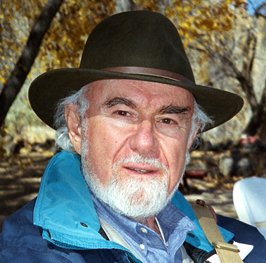
Israel Borouchoff was born in Kiustendil, Bulgaria, in 1929. His father, Yako Baruch, was a successful lawyer. In 1935, the family moved to Sofia, capital of Bulgaria, where Baruch started a new law practice, and Israel attended the prestigious American Grade School. Life changed drastically at the end of 1941: the school closed, Bulgariaís anti-Semitic Laws for the Defense of the Nation went into effect, and the family was forced to move first to Sofiaís ghetto, then later back to Kiustendil.
In 1943, Baruch was instrumental in convincing Dimitar Peshev, former deputy chairman of the Bulgarian National Assembly, to prepare a letter of protest to Prime Minister Bogdan Filov Ė signed by 42 of his colleagues Ė against the deportation of Bulgarian Jews. Due to the efforts of Peshev and others, not a single Bulgarian Jew lost his life during World War II solely due to being Jewish. Peshev was the subject of Italian journalist Gabriel M. Nissimís 1998 book, The Man Who Stopped Hitler, which Borouchoff has translated into English.
On December 31, 1943, Israel Borouchoff escaped from Bulgaria, making his way to Palestine. He returned to Bulgaria, where he resumed his studies first in high school and then in Sofiaís Music Conservatory. He immigrated to Israel in 1949, where he joined the Israeli Army as solo flutist of the Army Symphony and Band; he also played and recorded with the Israel Philharmonic Orchestra.
He came to the United States in 1955, enrolling at the Julliard School of Music in New York as a scholarship student. He also joined the Little Orchestra of New York, freelanced extensively, and recorded for the Book-ofthe-Month Club. In 1958, he accepted the position of Solo Flute with the St. Louis Symphony, where he spent eight seasons. In 1966 he took the same position with the Chamber Symphony of Philadelphia, staying for two years before joining the faculty of the University of Wisconsin-Milwaukee. From 1974 until his retirement as Professor of Music in 1992, he was on the faculty of Michigan State University.
Professor Emeritus Borouchoff and his wife Sharon now live in Colorado Springs. He has become a noted photographer, and is also active as a writer.
Many of his photographs are available online at the Israel Borouchoff Gallery.
Keynote Speaker: Elena Borislavova Poptodorova
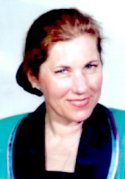
Elena Borislavova Poptodorova, Ambassador Extraordinary and Plenipotentiary of the Republic of Bulgaria to the USA, was born in Sofia, Bulgaria. She is a graduate of University of Sofia, with graduate studies at the University of National and World Economy, Sofia.
Ambassador Poptodorova began her career as 3rd Secretary of the Ministry of Foreign Affairs in 1975; she held various positions until her election as a Member of Parliament in 1990. From 1987 to 1990, she was Minister Plenipotentiary in the Bulgarian Embassy in Rome and Consul General of Bulgaria to San Marino. She was a Member of Parliament for the next decade, until April 2001. From June 2001 until her appointment as Ambassador to the United States in February 2002, she served as Director, Directorate of International Organizations and Human Rights, and Spokesperson, Ministry of Foreign Affairs.
In addition to her native Bulgarian, Ambassador Poptodorova speaks English, French, Italian, and Russian. She is married, and has one son.
More information is available on the Embassy's website.
Background: Saving Bulgaria's Jews
The saving of Bulgaria's entire 48,000-member Jewish community is one of the more remarkable stories of World War II and one of the least known. It happened in a country that was allied with Germany and the Axis powers, through the interplay of many forces and individual heroic acts. This is not to say that the Jews were not severely impacted, and twice deportations were ordered, but in the end no Bulgarian Jew was sent to the death camps.
Bulgaria was allowed by the Nazis to keep its political institutions including the monarchy of King Boris III and the National Assembly. In December, 1940, under Nazi pressure, the National Assembly adopted the Defense of the Nation Act, patterned after the infamous Nurenberg laws, which initiated organized persecution against Bulgarian Jewry. They were required to wear Star of David badges. Occupations and businesses became forbidden to them. Real estate and other properties were confiscated. Many Jews were forcibly resettled. Adult men were prohibited from military service and many were purposely drafted to build roads, which may have saved their lives. This provided a rationale for their importance and fended off deportation.
Several forces combined to save the Bulgarian Jewish community. The Bulgarian Eastern Orthodox church was extremely active and honorable, probably more than any other church in Europe, and unitedly and adamantly worked, both publically and privately, on behalf of their fellow citizens. The efforts of Metropolitans Stefan and Kirgil are particularly noteworthy. King Boris' role is unclear and undocumented. A number of people believe he was very active behind the scenes.
The Bulgarian people and their historical attitude of religious tolerance was a very important component and affected many participants. Jews, Christians and Moslems had lived harmoniously together in Bulgaria for millennia. In the northern part of the country, farmers threatened to lie down on the railway tracks, as did one of the leaders of the Bulgarian church.
Finally, the remarkable vice president of the Bulgarian parliament, Dmitar Peshev, worked unceasingly, against huge odds and at great personal sacrifice, on behalf of tolerance and the Bulgarian Jews. He almost single-handedly stopped the first deportation orders from being implemented and then tirelessly worked on numerous fronts to make certain the temporary relief was made permanent.
In receiving the Courage to Care award from the Anti-Defamation League on behalf of his country, then Bulgarian President Stoyanov stated "What happened then should not be seen as a miracle. My nation did what any decent nation, human being, man or woman, would have done in those circumstances." Then, we must ask, why did it happen so rarely?
Kaddish Prayer
The Kaddish, a prayer in the ancient Aramaic language, has been recited by Jews in memory of the departed for thousands of years. The version used here is punctuated with the names of the concentration camps. It will be recited by Norbert Yasharoff and his son, Joe.
Norbert Yasharoff was born in Sofia, Bulgaria in 1930. In May/June,1943, he and his family were forcibly resettled to Pleven, Bulgaria, along with all the Jews of Sofia, in the second attempt at removal of the Bulgarian Jewish community in preparation for deportation. After the war, Mr. Yasharoff's father, Joseph Yasharoff, successfully served as defense attorney for Dmitar Peshev, a major force in saving the Bulgarian Jews, during trials of former government leaders by the new government. Subsequently, Mr. Yasharoff and many other Bulgarians immigrated to Israel. He went to work at the American Embassy in Tel Aviv after college graduation. In 1968, Mr. Yasharoff moved to America and, in 1971, began a long career as a Foreign Service Officer for the U.S. Information Agency. He also has volunteered at, and translated thousands of wartime documents for, the U.S. Holocaust Memorial Museum.
Joe Yasharoff was born in Reading, England in 1963. He is Assistant Manager for Comcast Cable TV Sports in Bethesda, Maryland and, before that, was a Senior Producer for Fox News in Washington, D.C. Mr. Yasharoff, a graduate of the University of Maryland, is married and has one daughter.